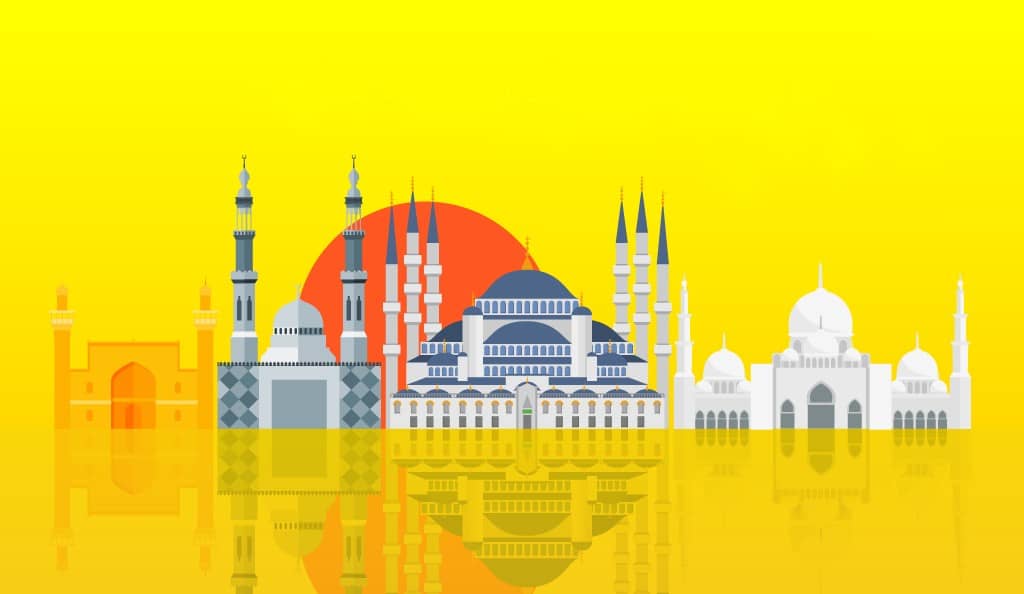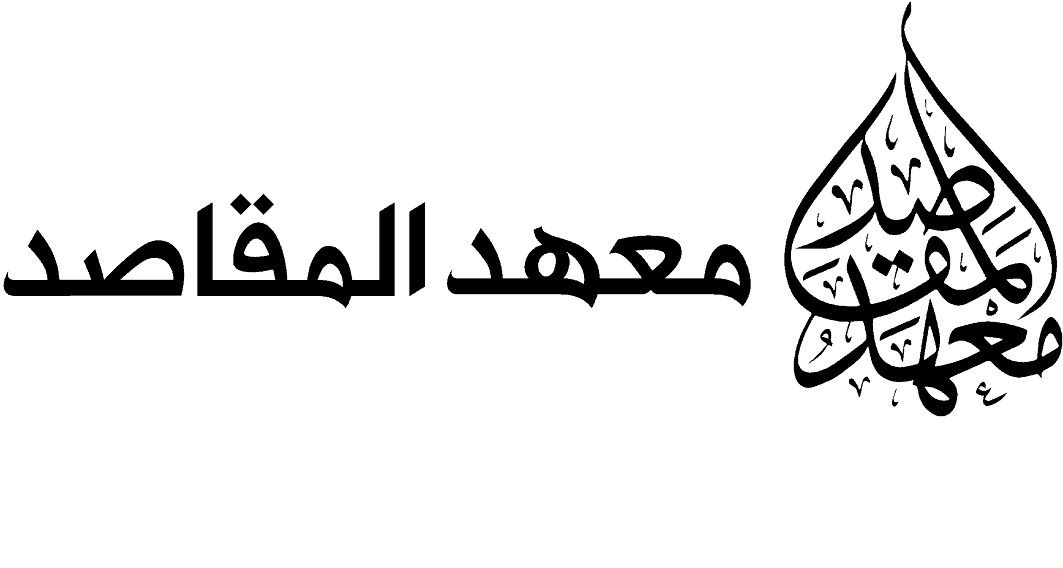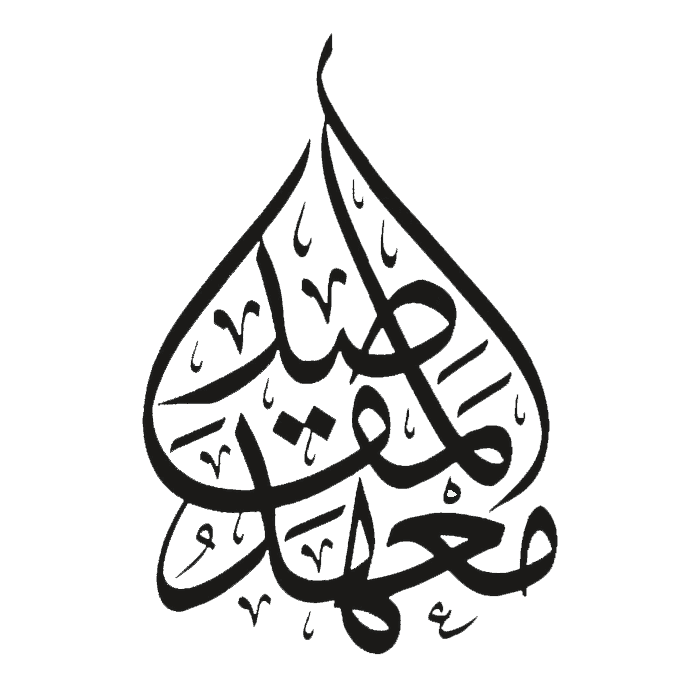by Dr. Ildus Rafikov
In Surah Ibrahim (14:24-25), Allah provides a profound parable: “Do you not see how Allah presents an example, a good word like a good tree, whose root is firmly fixed, and its branches (high) in the sky? It produces its fruit all the time, by the permission of its Lord. And Allah presents examples for the people that perhaps they will be reminded.” This parable beautifully captures the essence of a robust and comprehensive framework for life and thought, which is applicable to economics and finance. Just as a good tree is deeply rooted and continually fruitful, an economic system grounded in the principles of the Qur’an and Sunnah is stable, resilient, and perpetually beneficial to society.

The firm roots represent the core Islamic values and objectives that provide stability and ethical grounding. The widespread branches symbolize the far-reaching impact of an inclusive, well-integrated economic system that promotes justice, equity, and general well-being. The continuous fruit signifies the sustainable and consistent benefits that such a system yields, ensuring prosperity and harmony for all members of society. The short article below will attempt to provide, in general terms, a framework for the study of economic phenomena from the Islamic perspective.
As the world undergoes rapid changes brought about by technological progress, environmental challenges, wars, and socio-economic inequalities, it is essential for the fields of economics and finance to extend beyond their traditional boundaries and frameworks. As a scholar with a keen interest in Islamic economics, finance, banking, history, and philosophy, I propose that we re-evaluate our current approaches in these fields. To achieve this, the New Maqasid Methodology will serve as the cornerstone for this process of reimagination. This approach introduces a dynamic and systems-oriented perspective that is firmly rooted in the Qur’an and Sunnah.
The necessity for a comprehensive framework arises from the limitations and gaps present in contemporary Islamic economics. Currently, various frameworks dominate the field, each with distinct worldviews and methodologies. Some scholars embrace scientific approaches, which merely serve to add Islamic elements to existing economic models. they fail to to fully integrate Islamic values and principles, often reducing them to superficial add-ons rather than foundational components. In contrast, other scholars focus solely on Islamic traditions, rejecting contemporary methodologies. This approach can lead to imitation (taqlid) and a lack of innovation, restricting the ability to address modern economic challenges effectively.
Moreover, the Maqasid al-Shariah approach, while valuable, is often employed in an apologetic manner. Some scholars use it to justify contemporary banking and financial practices without critically examining their alignment with core Islamic principles. This results in frameworks that do not adequately challenge the status quo nor offer genuinely transformative solutions. Therefore, there is a pressing need for a comprehensive, dynamic systems approach directly derived from the Qur’an and Sunnah.
Economic phenomena, defined as complex, multi-faceted processes and interactions extending beyond conventional economic boundaries, require a nuanced understanding. These phenomena involve a dynamic interplay of religious, social, cultural, environmental, and technological factors, shaping the production, distribution, and consumption of resources within and across life systems. To address these phenomena holistically, we must employ a new framework that reflects a comprehensive reading of the Revelation, employing a critical and future-oriented methodology.
This new framework consists of an interconnected web of concepts, objectives, values, commands, universal laws, groups, and proofs derived from the Qur’an and Sunnah. By grounding our approach in these primary sources, we can ensure that our economic models are not only theoretically robust but also ethically sound and practically applicable.
The framework begins with core concepts from the Qur’an and Sunnah. These include Tawhid (active submission to the oneness of God), which emphasizes the interconnectedness of all life systems under the sovereignty of the Creator. This foundational concept guides our understanding of the relationships between humans, the environment, and economic activities. Another key concept is Khilafah (stewardship), which embraces humanity’s responsibility to manage resources wisely and equitably, ensuring sustainability and justice for future generations. The concepts of rizq (provision) and infaq (spending) help us understand where all provisions come from and how we are supposed to use them.
Objectives (Maqasid) of the Qur’an play a crucial role in shaping the framework. The Qur’anic objectives encompass a broader vision, aiming for the holistic development of individuals and societies that depend on God and the natural environment. These include the promotion of justice, mercy, and compassion, the establishment of peace and security, encouraging of deep contemplation, the promotion of knowledge and intellectual growth, and the pursuit of shared well-being. By prioritizing these Qur’anic objectives, we can effectively address contemporary challenges with a strong ethical foundation and contextually relevant solutions.
Values derived from the Qur’an and Sunnah, such as justice (adl), compassion (rahmah), and moderation (wasatiyyah), serve as ethical guidelines for economic behavior. These values ensure that economic activities promote human well-being and social harmony, rather than mere profit or utility maximization. Furthermore, the advancement of Qur’anic principles in economic transactions is not only useful to individuals but also promotes collective welfare. This approach emphasizes the responsible utilization of natural resources and the environment, with the aim of preventing depletion and degradation in the long term. Commands and prohibitions, such as the prohibition of riba (interest) and gharar (extreme uncertainty, risk, or deception) and the obligation of zakat (almsgiving), provide specific directives for structuring financial systems and redistributing wealth to promote societal development through shared common good.
Universal laws in this framework encompass principles known as Sunnat Allah or Sunan Ilahiyah, which apply regardless of place and time. Among these laws is the principle of societal change, which states that people or nations will not change until they change what is within themselves (Surah Ar-Ra’d, 13:11). This underscores the importance of internal transformation and moral development as prerequisites for societal progress. Another universal law postulates that there must be no harm nor reciprocating harm, reflecting the Qur’anic principle of preventing injustice and advancing social harmony (Hadith). Additionally, the Qur’an teaches that Allah prefers some people over others in terms of provision (rizq), but it is incumbent upon the well-off to share their fortunes with the less fortunate, ensuring equitable distribution of resources (Surah An-Nahl, 16:71). The universal law of diversity is evident in both nature and the Qur’an (Surah Al-Nahl, 16:13, 16:69; Fatir, 35:27-28; Al-Hujurat, 49:13; Al-Rum, 30:22), where natural diversity is considered the normal order of life and contributes to improved resilience. Therefore, it is essential for an economy to be adequately diversified to guarantee its sustainability. Another fundamental law is the requirement of collective decision-making through shūra (consultation), promoting participatory governance and inclusivity (Surah Ash-Shura, 42:38). By adhering to these universal laws, we can create economic systems that are just, equitable, and sustainable.
Proofs are necessary to support the practical application of these concepts, objectives, values, and laws in various contexts. Proofs derived from the Qur’an and Sunnah provide a solid foundation for the framework, ensuring its alignment with Islamic principles. These proofs can be complemented by rational tools such as observation, induction, and experimentation. For instance, the Qur’an emphasizes the importance of reflection and understanding (Surah Al-Imran, 3:190-191), encouraging us to observe the world around us and draw lessons from it. Inductive reasoning allows us to derive general principles from specific instances, while experimentation helps to test and validate these principles in real-world scenarios. In the study of economic phenomena, proofs can guide analysis and policy by providing evidence-based insights. For example, empirical research can validate that Islamic banks are not in the business of financial intermediation but in the business of buying and selling debt obligations like conventional banks and that they also create money ex nihilo like their conventional counterparts. By combining divine guidance with rational inquiry, we can develop a robust framework that is both principled and pragmatic.
To integrate these elements into a unified framework, we must adopt a transdisciplinary approach that considers the complex interdependencies between humans and the environment, and their complete dependence on the Creator. This approach recognizes that economic phenomena are not isolated but interconnected with broader life systems. Therefore, the scope of our analysis must extend to government policy affecting life systems, encompassing a wide range of social, environmental, and technological factors.
The present framework provides a comprehensive and holistic perspective that is both critical and forward-looking. By drawing our principles directly from the Qur’an and Sunnah, we can ensure that our economic models are grounded in Islamic values and capable of addressing contemporary challenges. Adopting a dynamic systems approach allows for flexibility and adaptability, enabling us to respond effectively to emerging issues and evolving contexts.
To conclude, reimagining economics and finance through a comprehensive, dynamic systems approach grounded in the Qur’an and Sunnah is essential for creating fair, sustainable, and ethical economic systems. By bridging the gaps in contemporary Islamic economics and embracing a trans-disciplinary perspective, we can develop innovative solutions that promote holistic well-being and social harmony. This new framework not only aligns with Islamic principles but also provides a robust foundation for addressing the complex economic phenomena of our time.
this article is written by:
Dr. Ildus Rafikov, MI Vice President – Research

